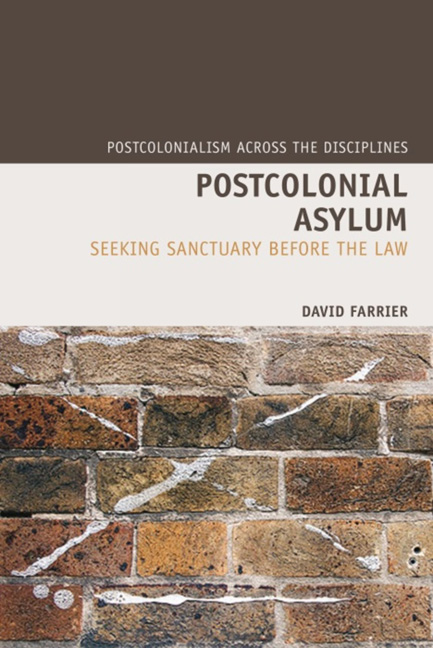5 - Terms of Hospitality
Summary
The law as such should never give rise to any story.
Jacques DerridaThe receding refugee
In 1951 Hannah Arendt declared that the emerging concept of ‘the refugee’ in international law was the harbinger of a crisis in the polis. ‘Man’, she said, ‘can lose all so-called Rights of Man without losing his essential quality as man, his human dignity. Only the loss of a polity itself expels him from humanity’. She predicted the refugee, as a ‘positive vanguard’, would inaugurate the dissolution of the state–nation–territory trinity. Yet, as Daniel Warner has observed, this triune formation persists ‘in a dysfunctional level’. Arendt's criticism, that the refugee exposes the rights of man as a concept in fundamental crisis, remains pertinent.
However, the terms of this crisis are in fact encoded in the term ‘refugee’ itself. The appropriation of recognition is central to the emergence of a culture of refusal in Western attitudes to asylum. It is acknowledged that, although the definition of the refugee is declaratory rather than constitutive (that is, a person is recognized becauses/he is a refugee rather than becoming one because s/he is recognized), de facto power to recognize is discretionary and resides with the state. International law has never made explicit provision for a right to be granted asylum, and it is widely held that the concept of refuge contained within ‘refugee’ has suffered significant erosion as the circumstances to which it is applied have diverged from the context in which it was formed. Daniel Steinbock has noted the authors of the 1951 Refugee Convention were ‘legislating about past events’ (i.e., the Nazi persecutions of 1933–1945); Jerzy Sztucki has called it a ‘Cold War product’ and ‘Eurocentric’. Although the 1967 Protocol waived both the temporal and geographical limitations of the original agreement, it did not affect the substanceof the definition of the refugee or redress its limitations (such as its silence on persecution on the basis of gender or sexuality). Rather, from the 1960s onwards the global orientation of displaced people towards the West has led Western nations to retreat from the principles of the 1951 Convention by qualifying the terms of eligibility for asylum.
- Type
- Chapter
- Information
- Postcolonial AsylumSeeking Sanctuary Before the Law, pp. 153 - 180Publisher: Liverpool University PressPrint publication year: 2011



